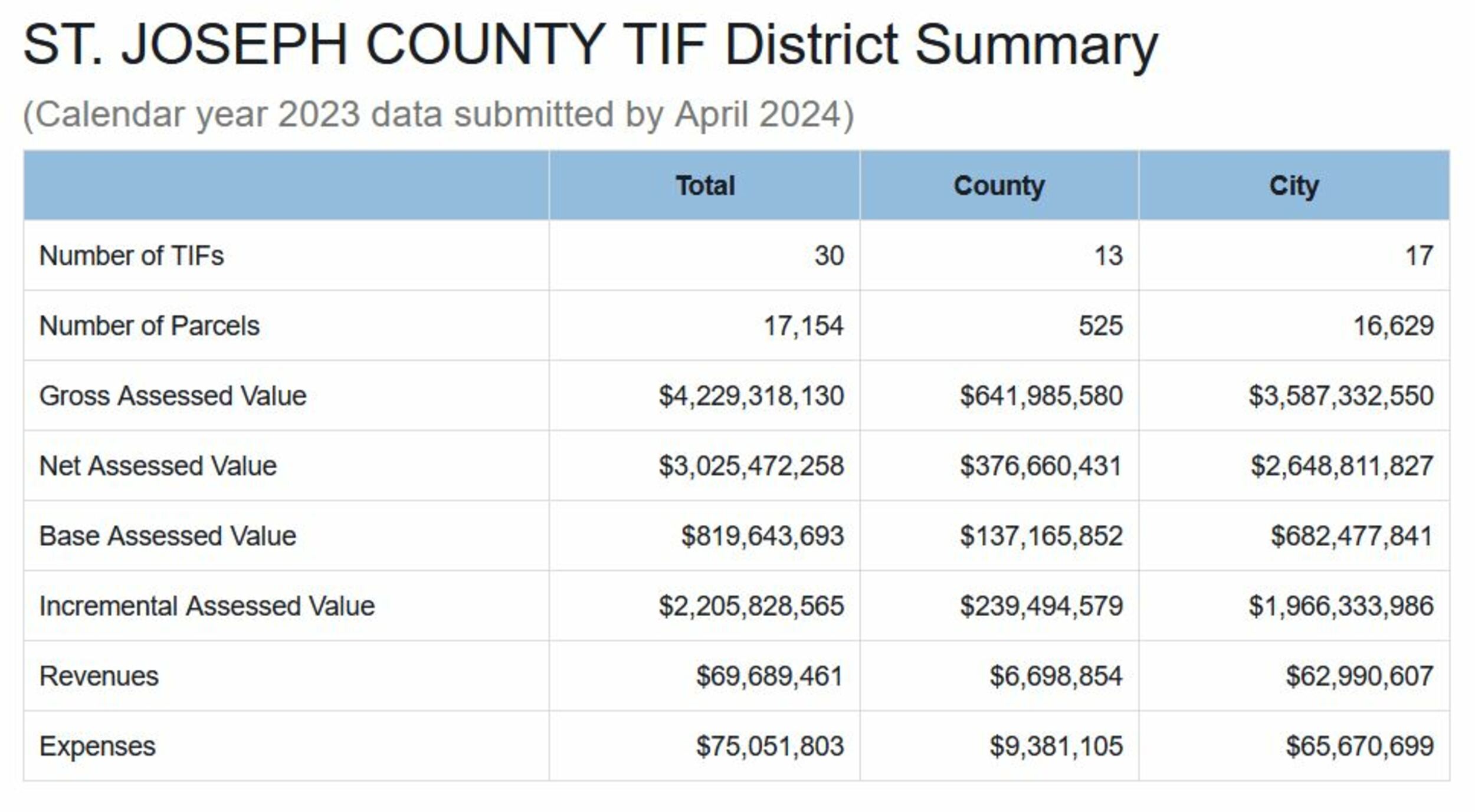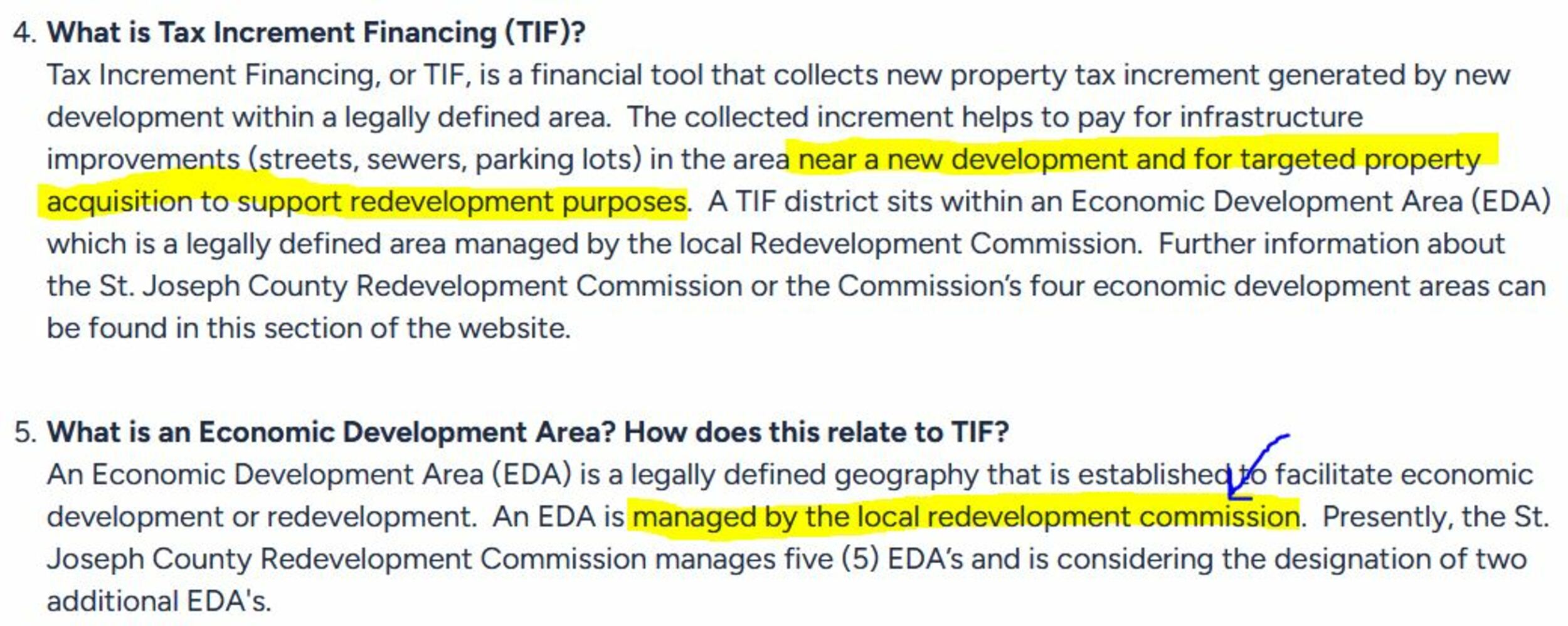
Also, according to our own local government, TIF money is supposed to stay in the area it is collected.
But this is not always the case. For example, the Redevelopment Commission redirected the money from the Honeysuckle Solar Project in New Carlisle to go to conduit and internet project in North Liberty.
Here is the ABC57 news on the broadband project: https://abc57.com/news/expanding-broadband-access-in-st-joseph-county
(Do you find it interesting that the Dumont Solar Project needs high speed internet for their solar equipment in North Liberty? What are your thoughts on that?)

Maurice Washington from Charleston County, South Carolina wrote:
"I personally believe TIF districts are inherently unfair, as they pick winners and losers in the local economy. By exempting certain businesses for taxes, the burden to pay for essential services instead falls to other businesses and to citizens. These additional tax burdens slow the growth of other businesses and reduce spending from citizens." -Maurice Washington
An analysis of TIF districts in Indiana counties by Ball State's Center for Business and Economic Research (CBER), found that TIFs are associated with less employment, less taxable income and slightly higher tax rates. See the study here: Some Economic Effects of Tax Increment Financing in Indiana
Why California Dissolved its Redevelopment Agencies
Learn more about TIFs and Corporate Welfare from the below videos:


